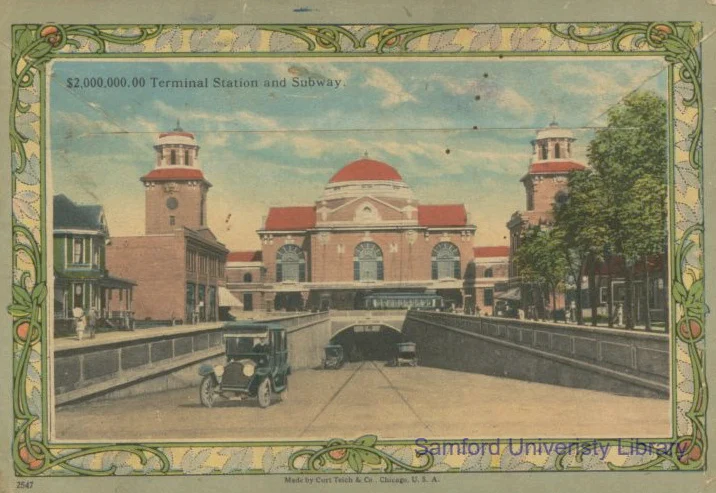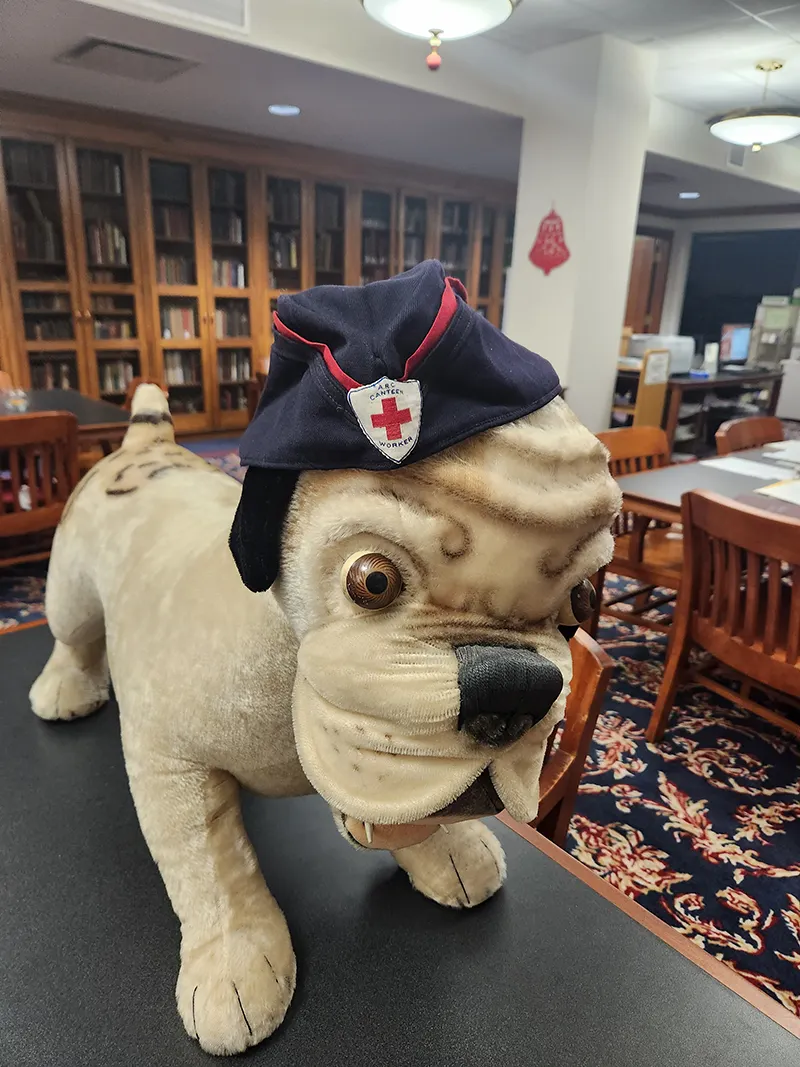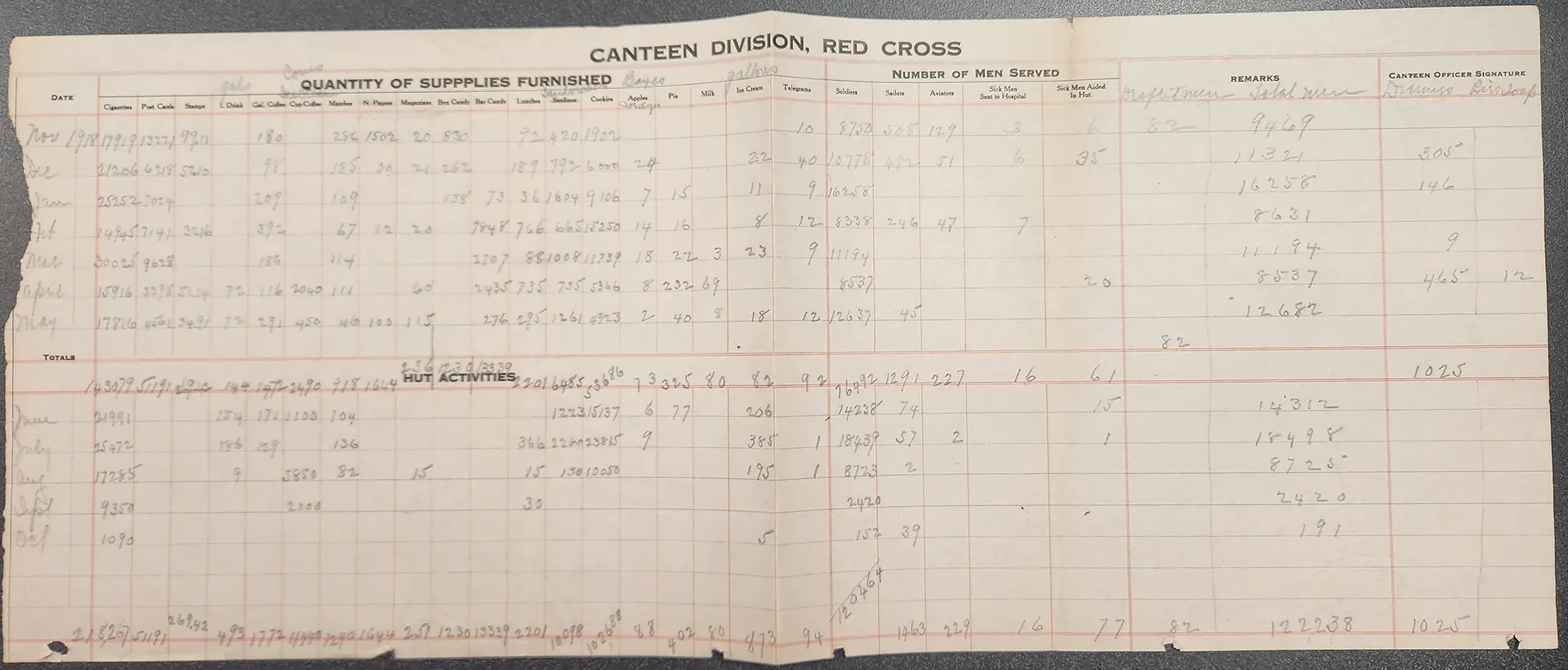 Photo. Birmingham Terminal Station.
Photo. Birmingham Terminal Station.
Birmingham American Red Cross Canteen Service
In May 1918, A branch of the American Red Cross Canteen Service was established in Birmingham, Alabama where it was housed in the Birmingham Terminal Station to service the many troops traveling by train during WWI. The Birmingham station was one of many operated by the Red Cross Canteen Service.
The Canteen Service arm of the American Red Cross was established in 1917. By the close of canteen operations in late 1919 there were 700 individual canteens in train stations across the US and serving allied soldiers in France, Great Britain, and Italy. These were all managed and operated by women. In those 700 canteens over 55,000 female volunteers fed nearly 40 million members of the allied armed forces. In one year, spanning November 1918 to October 1919, the Birmingham canteen served over 122,000 men. In that time, they gave out 873 gallons of ice crem, 10,098 sandwiches, and 102,688 cookies.
In Birmingham a wing of the Terminal Train Station was closed off and dedicated for the canteen. Open 24 hours a day there were always volunteers available to provide fruit, candies, stationery, cigarettes, and coffee to the soldiers laid over in Birmingham on their way to and from training camps and on their way home after the end of the war. A document distributed to the Gulf Division of the American Red Cross dated June 8, 1918, stressed many times that the American Red Cross will sell nothing to soldiers. Every piece of food, piece of paper, and cigarette was provided for free as a part of the war effort. The only things on sale were stamps. Hot meals were provided in the Terminal Café. Cots were pulled out every night at 10 o’clock for any soldier or sailor spending the night, and forty showers were added in an upstairs room. 250 women were regular volunteers, and Birmingham was unique in that it also had a 20-person music section that was composed of members of the Music Study Club of Birmingham, who also funded everything concerning the band. Sick and injured service members were provided basic medical services on site and more severe cases were occasionally sent to St. Vincent’s Hospital. This was especially essential during the 1918 influenza epidemic. The canteen continued to operate around the clock despite the epidemic that swept the world.
Due to the segregation enforced by Jim Crow laws in the southern United States, the main canteen experience at the Birmingham Terminal Station was restricted exclusively to white service men. Another area of the station was dedicated as the “Negro Soldiers Rest Room”. This area was run by black canteen workers and was also fitted with showers. It was supposed to provide the same comforts as those afforded to the white soldiers. Both areas were stocked by the same allotment of goods.
Other cities in the segregated South did not provide services to black service members. In Raleigh, North Carolina the canteen and bath houses were located alongside the railroad tracks. However, black soldiers were not allowed to disembark the train to enjoy the same hot meals or shower. Instead, the women volunteers passed goods to them through the train windows.
While the Redcross Canteen Service was a success in providing service men with rest and other necessities, it exemplified another instance of the disparity in the Jim Crow South.
 Photo. Howard College Mascot wearing Canteen Hat
Photo. Howard College Mascot wearing Canteen Hat
 Image. A.R.C. Canteen Worker Hat.
Image. A.R.C. Canteen Worker Hat.
Resources
- “140 Years of Service: Women an Important Part of American Red Cross History.” American Red Cross. Accessed December 1, 2023. https://www.redcross.org/about-us/news-and-events/news/2021/women-an-important-part-of-american-red-cross-history.html.
- Peek, Matthew. “Artifact Spotlight: WWI Raleigh Red Cross Canteen Photos.” Medium, November 16, 2021. https://medium.com/nc-stories-of-service/artifact-spotlight-wwi-raleigh-red-cross-canteen-photos-ac139cd8a92.
- Samford University Special Collection, SCAV 1637, Official Canteen Hats
- Samford University Special Collection, SC 5806, American Red Cross Birmingham Canteen Service Collection
- Samford University Digital Special Collection, p-od002377, Souvenir Views of the City: Birmingham, Alabama



